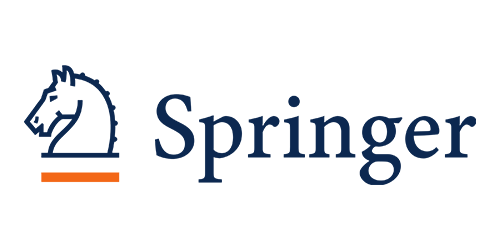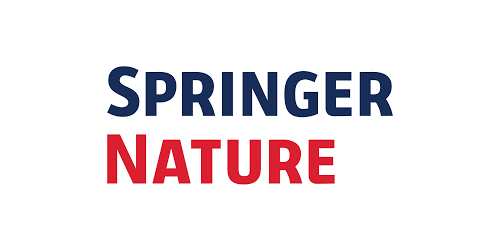MCT4SD Conference
International Conference on Machine and Computing Technologies for Sustainable Development
About Conference
This conference will provide the participants with opportunities to discuss and explore areas related to the cloud computing, artificial intelligence (AI), machine learning, Internet of Things (IoT), blockchain, and big data analytics. Conference may concern any topic within the conference scope. Workshops may be related to any topics within the conference scope. The conference is devoted to increase the understanding role of technology issues, how transformative technologies have day by day evolved to prepare human friendly technology. The conference will provide a platform for bringing forth significant research and literature
across the Digital Business Transformation and provide an overview of the technologies awaiting unveiling. This interaction will be the focal point for leading experts to share their insights, provide guidance and address participant's questions and concerns.
This conference will be organised in the hybrid mode, the conference will be organized in Physical Mode on 11 December 2025 in Manila, Philippines and digital sessions will be organised during 12 – 13 December 2025 via ZOOM.
Call for Papers
Original contributions from researchers describing their original, unpublished, research contribution which is not currently under review by another conference or journal and addressing state-of-the-art research are invited to share their work in all areas of cloud computing, artificial intelligence (AI), machine learning, Internet of Things (IoT), blockchain, and big data analytics and its applications in real world but not limited to the conference tracks.
Prospective authors are invited to submit paper(s) with 10 pages standard size and extension in pages possible written in A4 size (Springer format) at avaliable at https://resource-cms.springernature.com/springer-cms/rest/v1/content/19242230/data/v15
Authors are required to also adhere to the Springer Policy and Procedures on Plagiarism available at Click Here
Important Dates
| Papers Due | closed |
|---|---|
| Notification | As Per Notification |
| Registration and Camera Ready Paper Registration Due | As Per Notification |
| Conference Dates | 11 – 13 December, 2025 |
Submission Guidelines
Authors are kindly invited to submit their formatted full papers including results, tables, figures and references. All submissions are handled through the Easychair at:
Author Guideline for the Paper Submission : Advisory guidelines for the author to read before the submit paper.
Paper submission Guidelines
Conference Tracks
Track 1:
DATA SCIENCE AND SYSTEMS
- Information Retrieval, Systems and applications
- Accountability, consequences and costs of automated decisions
- Personal data usage in political campaigns and election forecasting
- Morally based decision-making under uncertainty
- Automation and economic consequences, big data
- Artificial intelligence, Semantic Web Technologies for Data Management
- Data Fusion, Pattern Recognition, Predictive Modelling
- Support Vector Machines, Deep Learning
- Evolutionary Computing and Optimization, Feature Selection
- Fuzzy Computing, Hybrid Methods, Neural Network Applications
- Industry 4.0, Linked Data, Management of Sensor Data
Track 2:
ENGINEERING SYSTEMS FOR BUSINESS APPLICATIONS
- Collaboration Technologies and Systems
- Embedded Systems, Natural Language Processing
- Environmental Computing, Agricultural Engineering for ICT Applications
- ICT Applications for Electrical and Intelligent Engineering
- Digital Design and Manufacturing Technology
- Numerical & Symbolic Computation
- Mechanical Drawing & Computer Graphics
- Gender Issues, Geo Information, GIS, Green Computing, Multimedia
- Civil and Architectural Engineering
- ICT Trends for Engineering Structure, Architectural Economics
- Human Computer Interaction
- Robotics, Information Technology for People with Special Needs
- Nano Technology Software Tools, ICT Applications for fluid Dynamics
Track 3:
Intelligent computing
- Artificial Intelligence
- Pattern recognition
- Machine Learning
- Cognitive Computing
- Machine Learning Science, Sequential and Incremental Learning, Kernel Learning
- Deep Learning
- Soft Computing
- Evolutionary Computing
- Meta-heuristics
- Semantic Computing
- Expert systems
- Information retrieval
- Big Data processing and applications
- Data mining
- Natural Language Processing
- Computer vision
- Image processing
- Audio and speech processing
- Computational science applications
- Scientific computing applications
- E-commerce applications, Web services
- Biomedical applications
- Emerging applications in Healthcare and Engineering
Track 4:
Network and Social Computing
- Computer networks
- Ad hoc, Sensor, Vehicular networks
- Smart cities
- AI in IOT
- 5G Communication
- Next generation Internet Software Defined Networks
- Performance evaluation of networks and distributed systems
- Social Network behavior Modelling and Analysis
- Computational models of social simulation
- Information diffusion models
- Emotional intelligence, opinion representation, influence process
- Social Media Data Mining
- Smart phones and Security
Track 5:
Data and Cloud Computing
- Cloud
- Fog Computing
- Block chain Systems
- Edge computing
- Cluster, Grid Distributed and P2P Computing
- Scheduling and load balancing
- Embedded Systems and Robotics
- Embedded Systems and VLSI
- Multi-FPGA reconfigurable systems and architectures
- Parallel and Multi-core Computing
- Smart phones and Security
- Enterprise, data Centre, and storage area networks
- Virtualization and fields related to data science
- Data analytics
- Big data technologies
- Big Data Management
- Mobile Commerce
- Real-time big data services
Track 6:
Computer Algorithms and Applications
- Novel Algorithm Analysis Designs, and Implementation
- Parallel, Distributed Algorithms Combinatorial Algorithms
- Graph Algorithms
- Scheduling and Load Balancing Algorithms
- Randomized Approximation
- Parameterized Algorithms
- Optimization Algorithms
- Bio-Inspired Algorithms
- Complexity Theory
- Fault-tolerant Algorithms
- Bioinformatics Algorithms
- Computational Biology
- Quantum Computing
- Algorithmic Game Theory
- Computational Finance
- Computational Geometry
- On-line and Streaming Algorithms
Track 7:
Digital Transformation and Applications
- Role of Artificially Intelligent (AI) Technologies in Organizational and Societal Transformation
- Digital Business Strategy
- Digitally Engendered Network Effects
- Leadership in Digital Social Networks
- Digitization and Transformation of Work
- Digital Processes, Products, Platforms, and Services
- Digital Value Chain Innovations
- Digital Architectures and Governance Models
- Business Analytics
- Effects of Digitization on Jobs, Incomes, and Wages
Track 8:
Internet of Things and Applications
- Scalable IoT architectures and systems
- Edge AI, intelligent edge, and computing continuum applications and technologies
- Novel IoT communication technologies and protocols
- Sustainability in IoT
- Small and large-scale pilots of IoT sensing, signal processing, actuation, and analytics
- Safety, security, and privacy, including predictive maintenance, risk analysis
- Quality of service in IoT and cyber-physical systems
- Digital twins, databases, and data maintenance for IoT.
- Human-computer interaction and interfaces with wearable IoT systems
- IoT-enhanced augmented/virtual/mixed reality (AR/VR/MR),
- Cyber-physical systems
- Large-scale IoT analytics, real-world IoT deployments, testbeds, and datasets
- Transient large-scale networks, including vehicular and other mobile networks
- Paradigms and technologies for service provisioning via IoT
Track 9:
Machine Intelligence
- Foundations of Machine Intelligence
- Supervised, Unsupervised & Reinforcement Learning
- Deep Learning Architectures (CNN, RNN, LSTM, Transformers)
- Evolutionary and Swarm Intelligence
- Transfer Learning and Meta-Learning
- Hybrid Intelligent Systems
- Self-supervised and Few-shot Learning
- Neural Architecture Search
- Online, Federated, and Distributed Learning
- Probabilistic and Bayesian Learning
- Fuzzy Logic and Neuro-Fuzzy Systems
- Adaptive and Self-learning Systems
- Scalable Algorithms for Large-scale Data
- Explainable and Interpretable Machine Learning
- Adversarial Learning and Robustness
- Benchmarking and Evaluation Metrics
- Intelligent Transportation Systems (ITS)
- AI for Environmental Monitoring
Publication & Indexing 2025
All MCT4SD 2025 presented papers will be published in conference proceedings by Springer LNNS. ISSN: 2367-3370, Series : https://www.springer.com/series/15179
INDEXING
Indexed by SCOPUS, EI Compendex, INSPEC, WTI Frankfurt eG, zbMATH, SCImago. All books published in the series are submitted for consideration in the Web of Science.

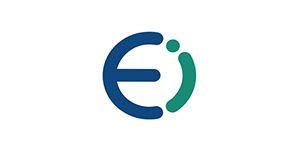

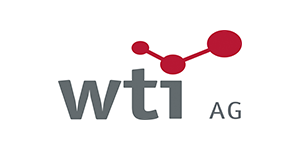
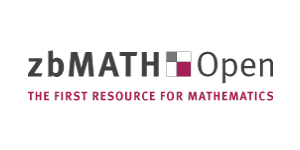
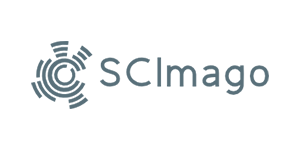
Special Session
MCT4SD 2025 solicits proposals for special sessions within the technical scope of the conference. Special sessions supplement the regular program of the conference and provide a sample of the state-of-the-art research in both academia and industry in special, novel, challenging, and emerging topics.
Special-session proposals should be submitted by the prospective organizer(s) who will commit to promoting and handling the review process of their special session as Chairs or Co-Chairs of the event. Proposals should include the following information:
- Title;
- Name(s) of organizer(s);
- Email of main contact person;
- Brief bio(s) of organizer(s);
- Brief description;
- Related topics;
- Potential participants;
- A draft of the CFP (please download and use the template at the link below);
- Description of publicity and promotion plan;
- Brief report on past editions of the special session, if any, including the number of submitted and accepted papers, the number of attendees, etc.
Papers submitted to special sessions will have to be evaluated and peer-reviewed along the very same criteria of the regular sessions.
Submissions guidelines
Please provide all the information requested above when preparing your special-session proposal before submitting it in PDF format by E-mail to the Special-Sessions Chairs at: support@mct4sd.com
Important Links
| Link | |
|---|---|
| Proceedings guidelines for authors | Download |
| Author Guideline for the Paper Submission | Paper
submission Guidelines |
| Sample Latex paper | Download |
| Latex instructions for authors | Download |
| Latex Package | Download |
| Word Templates | Download |
| Authors are required to adhere to the Springer Policy and Procedures on Plagiarism available | Click Here |
